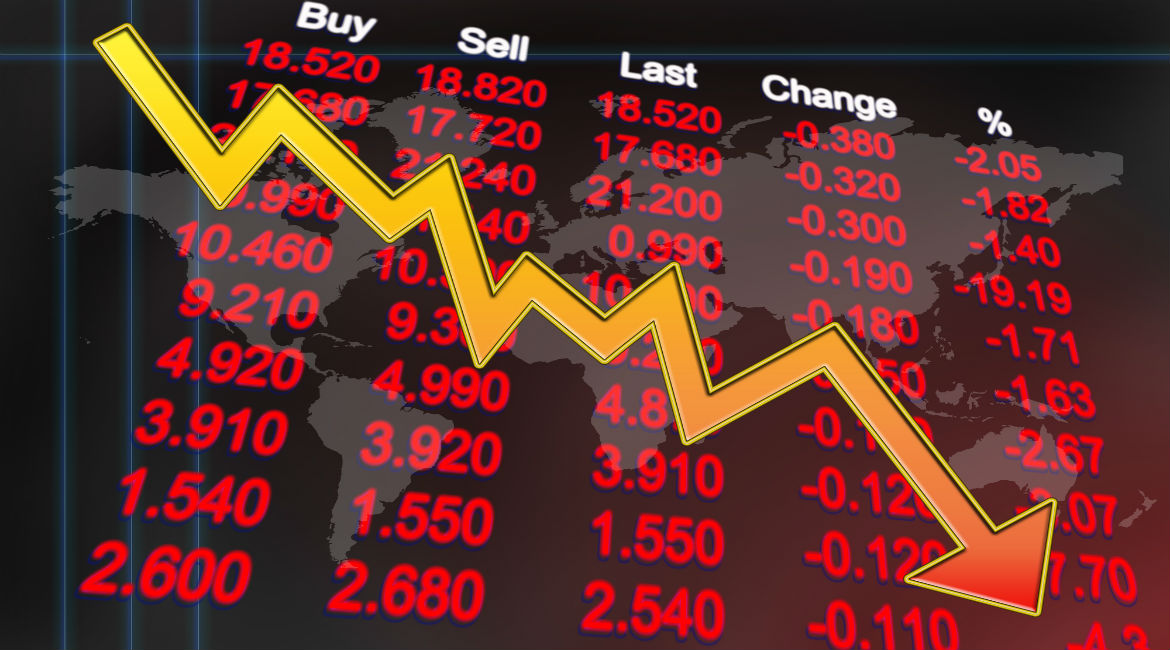Economist Who Called 1987 Crash Warns Markets Face Growing Risk
09.06.2025 17:00 2 min. read Alexander Stefanov
Mark Skousen, the economist who foresaw the 1987 market collapse, believes the current financial environment is entering a precarious phase.
In a recent interview with David Lin, he warned that structural weaknesses and rising uncertainty could soon test global markets.
Rather than an isolated shock like ‘Black Monday,’ Skousen sees today’s risks as systemic and slow-building. He points to shaky economic policies, deteriorating investor confidence, and a weakening dollar as early signs of deeper instability. Although past Federal Reserve actions, such as the aggressive liquidity boost in 2020, helped avoid short-term damage, they’ve also fueled longer-term inflation pressures.
Skousen voiced concern over the gap between rising Treasury yields and a falling dollar—a disconnect he interprets as declining faith in U.S. financial leadership. He partly attributes this to ongoing trade wars and political dysfunction, arguing that uncertainty over U.S. policy is pushing investors toward safer assets like gold.
The economist also flagged overreliance on leverage and fractional reserves as serious vulnerabilities. A single institutional failure, he warned, could trigger a wider crisis.
Recession fears persist despite progress in U.S.-China trade talks. While JPMorgan has lowered its 2025 recession odds, others remain bearish. Economist Steve Hanke, for example, continues to forecast a 90% chance of a downturn, citing long-lasting effects from past trade policies.
Skousen’s bottom line: markets are more fragile than they appear, and the wrong policy move could be enough to spark the next major disruption.
-
1
U.S. PCE Inflation Rises for First Time Since February, Fed Rate Cut Likely Delayed
27.06.2025 18:00 1 min. read -
2
Key U.S. Economic Events to Watch Next Week
06.07.2025 19:00 2 min. read -
3
Gold Beats U.S. Stock Market Over 25 Years, Even With Dividends Included
13.07.2025 15:00 1 min. read -
4
U.S. Announces Sweeping New Tariffs on 30+ Countries
12.07.2025 16:30 2 min. read -
5
US Inflation Heats Up in June, Fueling Uncertainty Around Fed Cuts
15.07.2025 16:15 2 min. read
US Inflation Heats Up in June, Fueling Uncertainty Around Fed Cuts
U.S. inflation accelerated in June, dealing a potential setback to expectations of imminent Federal Reserve rate cuts.
Gold Beats U.S. Stock Market Over 25 Years, Even With Dividends Included
In a surprising long-term performance shift, gold has officially outpaced the U.S. stock market over the past 25 years—dividends included.
U.S. Announces Sweeping New Tariffs on 30+ Countries
The United States has rolled out a broad set of new import tariffs this week, targeting over 30 countries and economic blocs in a sharp escalation of its trade protection measures, according to list from WatcherGuru.
Key U.S. Economic Events to Watch Next Week
After a week of record-setting gains in U.S. markets, investors are shifting focus to a quieter yet crucial stretch of macroeconomic developments.
-
1
U.S. PCE Inflation Rises for First Time Since February, Fed Rate Cut Likely Delayed
27.06.2025 18:00 1 min. read -
2
Key U.S. Economic Events to Watch Next Week
06.07.2025 19:00 2 min. read -
3
Gold Beats U.S. Stock Market Over 25 Years, Even With Dividends Included
13.07.2025 15:00 1 min. read -
4
U.S. Announces Sweeping New Tariffs on 30+ Countries
12.07.2025 16:30 2 min. read -
5
US Inflation Heats Up in June, Fueling Uncertainty Around Fed Cuts
15.07.2025 16:15 2 min. read


